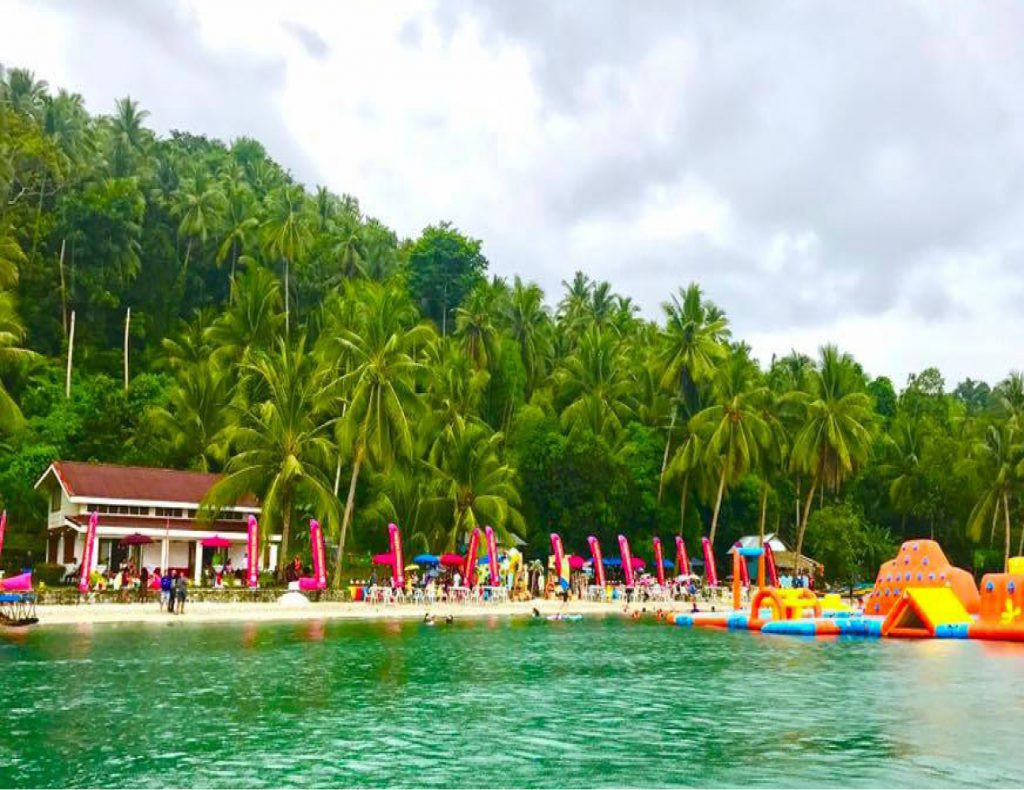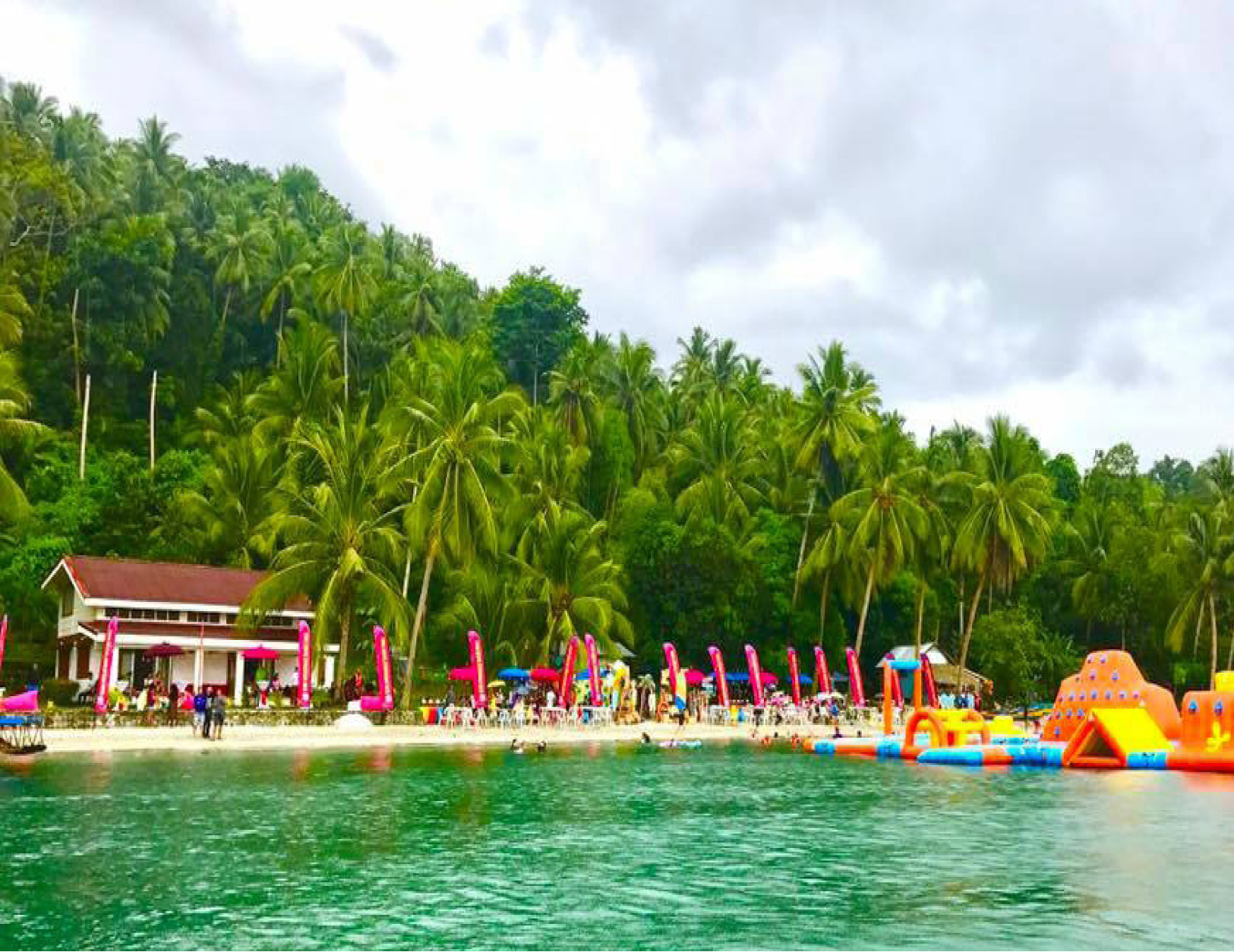
(photo courtesy:Mayor Stephany Uy-Tan)
CATBALOGAN CITY- A new attraction for water activity lovers has opened in this city Sunday (Sept.10)
The Buri Inflatable Water Park in Buri Island, a first of its kind in the region and the third in the country, offers water activities like banana boat, fly-fish, zorb ball and water park including snorkeling and island hopping.
Catbalogan City Mayor Stephanie Uy-Tan graced the opening of the waterpark which is privately owned but is being supported by the city government through the social preparation of identified residents of Barangay Estaka.
The selected residents attended series of community workshops, capacity building trainings and technical assistance facilitated with the assistance from the Department of Trade and Industry Samar Provincial Office in the creation of people’s organization (PO).
“I personally believe that sustainable tourism can only be achieved if the local communities are at the heart of any engagement because with the sense of ownership of the beneficiaries, the protection and preservation of the environment can be achieved and sustained,” Mayor Uy-Tan said during the opening program of the waterpark.
After the opening of the water park, the next project for the Buri Island development is the creation of the Mangrove Eco-Park situated in Barangay Cabugawan and the production of recycled souvenir and eco-products at Barangay San Roque.
The development of Buri Island is included in the 2017-2022 Local Development Investment Plan, which prioritized investable development programs and projects that the city must implement.
Buri Island, located more than 10 kilometers from the city proper, is considered as one of the priority development areas for tourism and environmental intervention on poverty alleviation and socio-economic development by the city government of Catbalogan.
(ROEL T. AMAZONA)

